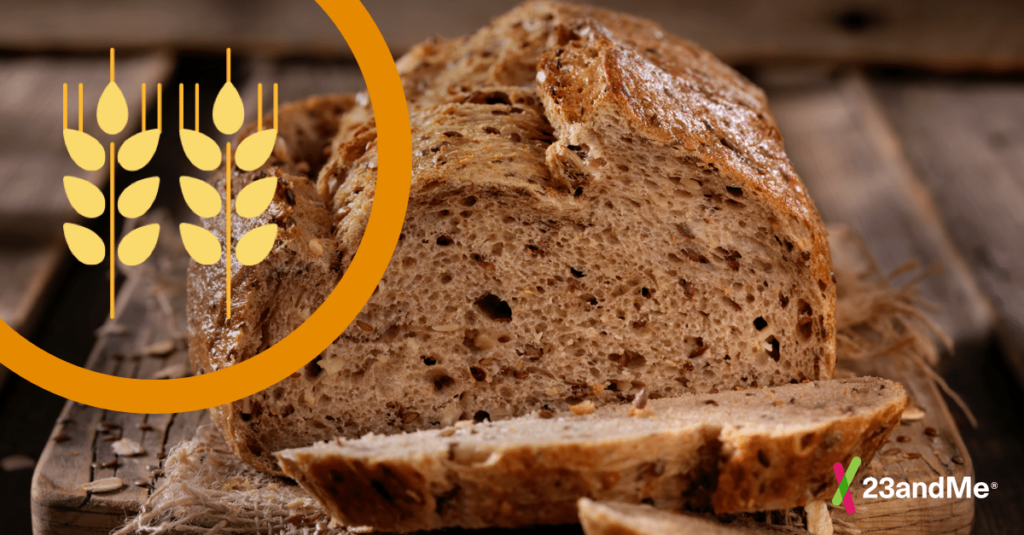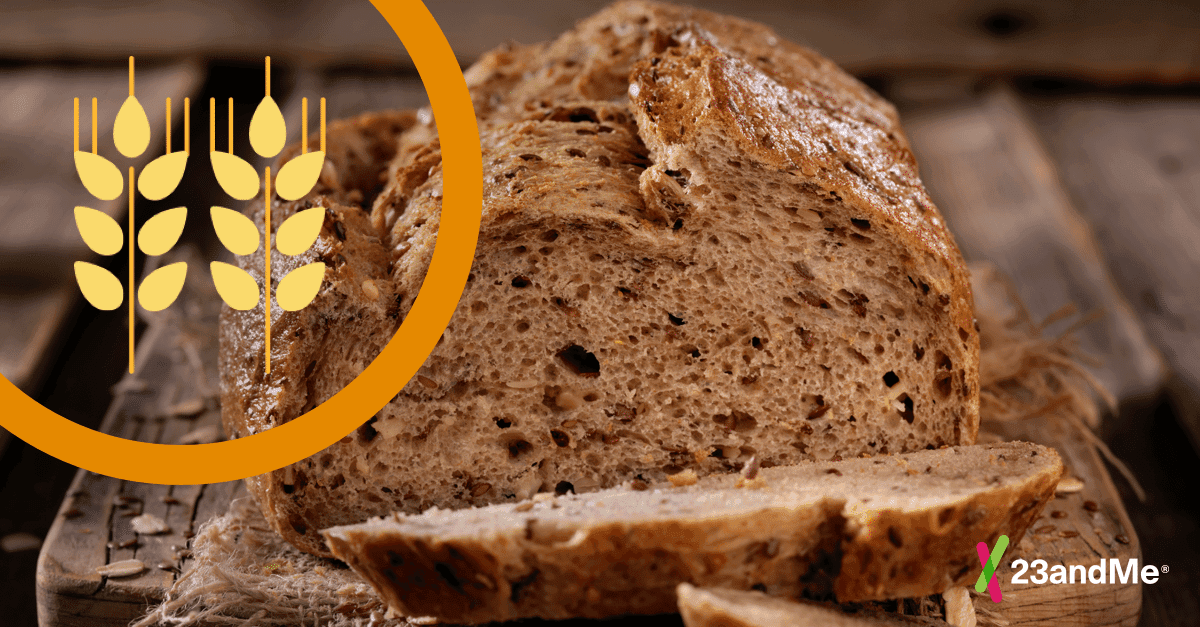Over the last decade, more and more people have embraced a gluten-free diet, but their motivations often differ.
Some of these people might have wheat allergies or gluten intolerance. But a small percentage of people have a condition called celiac disease. For someone with celiac disease gluten triggers an immune response that damages the small intestine. This can affect the absorption of nutrients and lead to painful digestive problems.

New 23andMe Report on Celiac Disease
This week 23andMe released a new genetic health risk report on celiac disease.* The new report looks at two genetic variants — rs2187668 and rs7454108 — that are linked to the HLA-DQ2.5 and HLA-DQ8 haplotypes associated with higher risk for celiac.
A haplotype is a group of genes inherited together from a single parent. People with one or both of these two haplotypes account for about 95 percent of all of celiac disease cases. So if you have celiac disease, it’s likely you have one of these variants.
But it’s important to note that having one of these variants doesn’t mean you will develop celiac disease. Although 15 to 30 percent of all people have one of these risk variants, only about 3 percent of people with one of these variants develop celiac disease. If you don’t have one of these haplotypes it is very unlikely that you will develop celiac disease.
A Gluten-Free Diet
But knowing you have one of these variants can be important especially for those who believe they have symptoms or additional risk factors. If they learn they have at least one of the risk variants, the report could help them follow-up with a doctor. A doctor may recommend more rigorous screening. For most people with celiac disease, the most effective treatment is adhering to a completely gluten-free diet. This can help alleviate symptoms and allow the small intestine to heal.
It’s possible to have gluten sensitivity and not have celiac disease. This report does not cover non-celiac disease gluten sensitivity. 23andMe doesn’t currently have reports on food allergies or other sensitivities to gluten.
23andMe’s Celiac Disease report adds to a growing list of valuable and actionable genetic health risk reports we offer customers.
*The Celiac Disease genetic health risk report (i) is indicated for reporting of the rs2187668 variant in the HLA-DQA1 gene, which tags the HLA-DQ2.5 haplotype; and the rs7454108 variant near the HLA-DQB1 gene, which tags the HLA-DQ8 haplotype, (ii) describes if a person has variants associated with an increased risk of developing celiac disease, and (iii) is most relevant for people of European descent.




